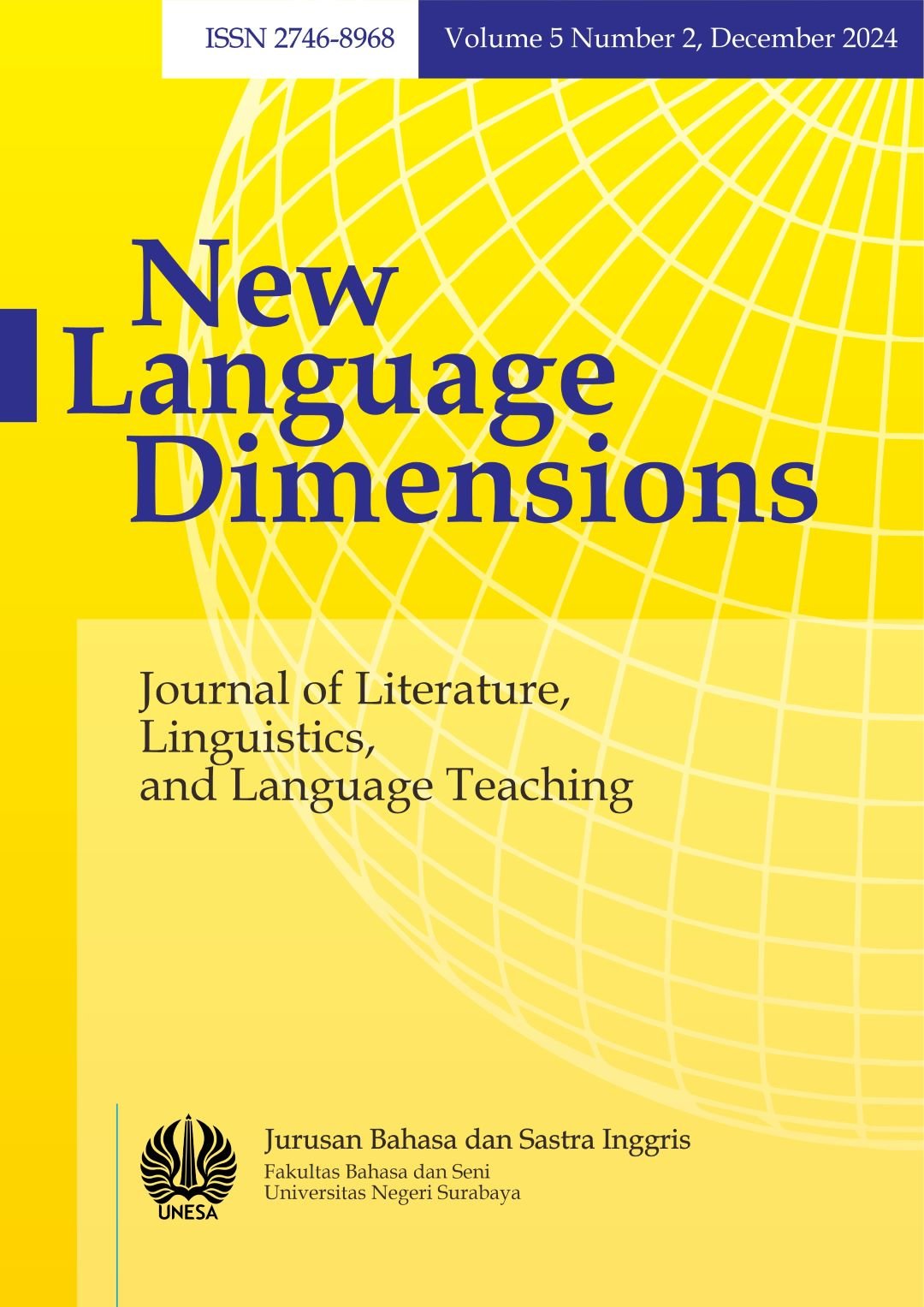Interculturalism in Indonesian ELT
DOI:
https://doi.org/10.26740/nld.v5n2.p115-122Keywords:
Interculturalism, ELT, culture, cross-culturalism, EnglishAbstract
The integration of culture in language classrooms is crucial to enhance students’ translingual and transcultural competence. This is particularly relevant in English Language Teaching (ELT), where English serves as a global lingua franca among multicultural users. Effective communication requires both language proficiency and cultural literacy. In Indonesia, where English is taught and learned by individuals from diverse cultural backgrounds, the Ministry of Higher Education mandates the inclusion of cross-cultural subjects in teacher education. However, many English as a Foreign Language (EFL) teachers feel unprepared to integrate cultural elements due to a lack of training and models. This essay explores the challenges of cultural integration in Indonesian teacher education, reviews related literature and case studies, and proposes strategies to enhance cultural inclusion in language teaching.
Downloads
References
Abdulrahman, T. , U. N. R. , & T. Z. (2016). Teachers’ perspectives on the integration of culture and EFL. JER: Journal of ELT Research, 1(2), 180–193.
Bennett, J. M. , B. M. J. , & A. W. (2003). Developing intercultural competence in the language classroom. Culture as the core: Perspectives on culture in second language learning.
Chen, D., & Yang, X. (2015). Culture as the Core: Challenges and Possible Solutions in Integrating Culture into Foreign Language Teaching. Journal of Language Teaching and Research, 7(1), 168. https://doi.org/10.17507/jltr.0701.19
Feryok, A. (2008). An Armenian English language teacher’s practical theory of communicative language teaching. System, 36(2), 227–240. https://doi.org/10.1016/j.system.2007.09.004
Gandana, I., & Parr, G. (2013). Professional identity, curriculum and teaching Intercultural Communication: an Indonesian case study. Language, Culture and Curriculum, 26(3), 229–246. https://doi.org/10.1080/07908318.2013.833620
Kidwell, T. (2019). Kidwell 1 The Electronic Journal for English as a Second Language (Vol. 4, Issue 4).
Kiely, R. (2019). The Routledge Handbook of English Language Teacher Education. In Evaluating English language teacher education programmes (pp. 82–95). Routledge.
Lee, T. M. L. (2005). Intercultural teaching in higher education. Intercultural Education, 16(3), 201–215. https://doi.org/10.1080/14675980500211808
Morganna, R., & Samiati Tarjana, S. (2018). Immersion vs. construction: The portrayals of culture in Indonesian EFL learning paradigm. In Journal of Language and Linguistic Studies (Vol. 14, Issue 2). www.jlls.org
N., D. (2012). Bringing American Popular Culture to the English Departments in Indonesia*. K@ta, 14(2). https://doi.org/10.9744/kata.14.2.51-56
Nindya, M. A., Widiati, U., & El Khoiri, N. (2022). Pre-service Teachers’ Perceived Understandings and Practices of Intercultural Communicative Competence in EFL Teaching. International Journal of Language Education, 6(3), 297. https://doi.org/10.26858/ijole.v6i3.22747
Novita, D., & Purwati, O. (2021). Incorporating culture and textbook adaptation practice for promoting intercultural competence in ELT: Teachers’ perspectives. JEES (Journal of English Educators Society), 6(1), 96–104. https://doi.org/10.21070/jees.v6i1.1059
Saini, F., & Ardhy, A. A. S. (2023). Exploring the Dimensions of Intercultural Communicative Competence (ICC) in English Learning: Insights from EFL Students. ELT Echo: The Journal of English Language Teaching in Foreign Language Context, 8(2), 145. https://doi.org/10.24235/eltecho.v8i2.15111
Sanusi, A. (2016). Metodologi Penelitian Bisnis. Salemba Empat.
Shahed, F. H. (2013). Culture’as A Skill In Undergraduate EFL Classrooms: The Bangladeshi Realities. TEFLIN Journal, 24(1).
Walsh, S., & M. S. (2015). Doing reflective practice: A data-led way forward. Elt Journal, 69(4), 351–362.
Welsh, A. (2014). Promoting a Respect for Difference through Language Teaching. TEFLIN Journal: A Publication on the Teaching & Learning of English, 25(2).
Downloads
Published
Issue
Section
 Abstract views: 274
,
Abstract views: 274
, PDF Downloads: 138
PDF Downloads: 138











